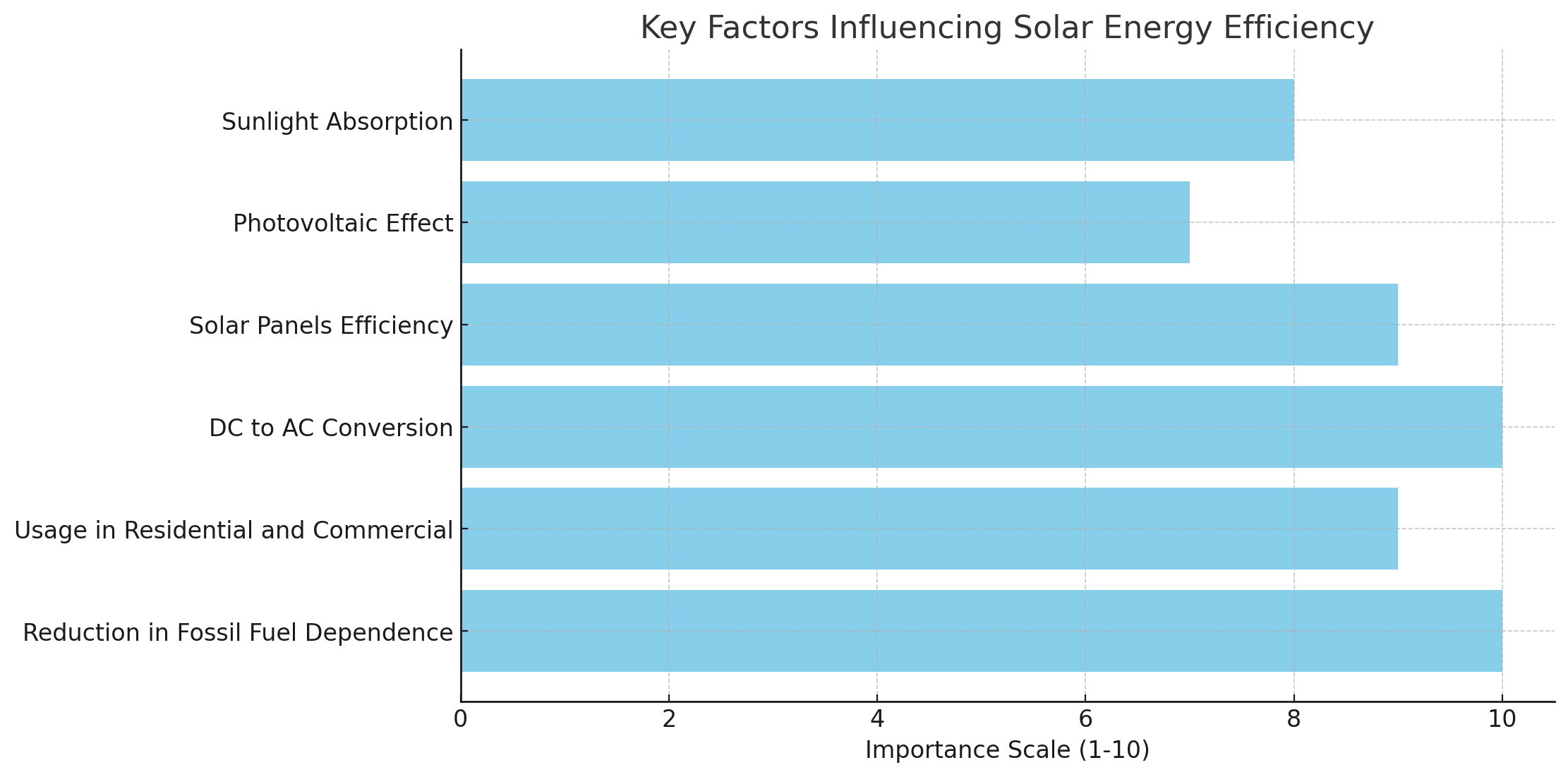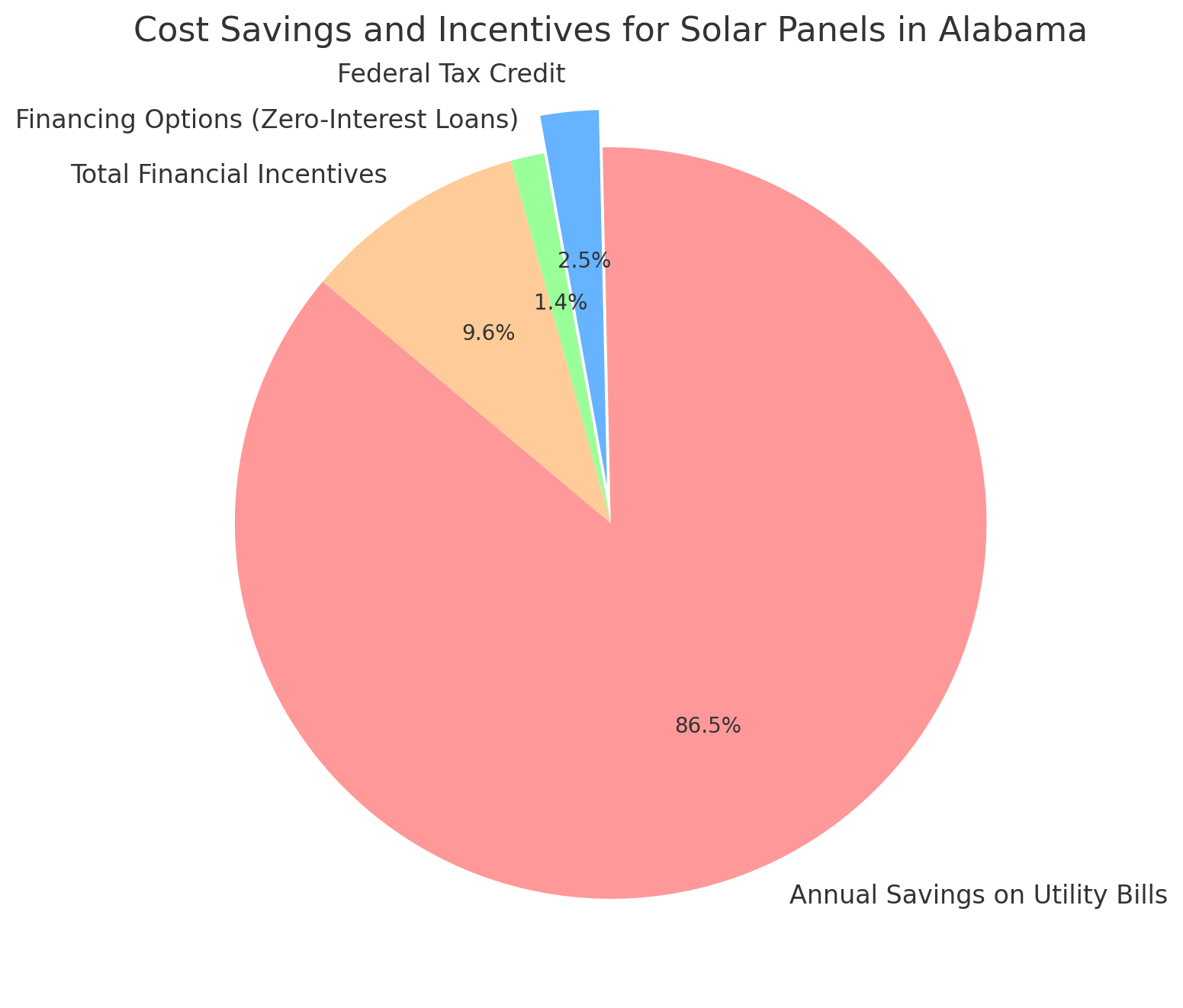Solar Panels Alabama: Your Guide to Solar Power Installation
As an increasing number of homeowners in Alabama seek sustainable energy solutions, solar panels are becoming a prevalent option. This guide provides a comprehensive overview of solar panels, detailing their definition, functionality, and the numerous benefits they offer.
It examines the environmental impact, potential cost savings, and available incentives specifically designed for residents of Alabama.
Additionally, it outlines the various types of solar panels, important installation considerations, and the initial steps to take.
Ultimately, this guide illustrates how solar energy can enhance residential properties while contributing to a greener future.
The Basics of Solar Panels
Solar panels are integral components of contemporary clean energy solutions, utilizing photovoltaic systems to convert solar energy into electricity. Widely employed in both residential and commercial solar installations, these systems effectively transform sunlight into power, thereby enhancing energy efficiency and promoting sustainability.
In Alabama, where sunlight is plentiful, the adoption of solar panels offers a practical option for homeowners and businesses, facilitating energy independence and lowering utility costs while aligning with the advancements in solar technology.
What are Solar Panels?
Solar panels are devices designed to convert sunlight into electricity through photovoltaic systems, utilizing advanced solar technology to generate energy from solar radiation.
These panels primarily consist of solar cells, typically composed of silicon, which capture and convert sunlight into direct current (DC) electricity. To render this energy suitable for residential and commercial use, inverters are employed to convert DC into alternating current (AC), which is the standard form of electricity utilized in electrical grids.
The mounting systems are integral to the installation, as they securely hold the panels in place and optimize their angle to maximize sunlight exposure. Collectively, these components ensure the efficient harnessing of solar energy and its transformation into a reliable power source, significantly enhancing the overall performance of the solar panels.

Cost Savings and Incentives
Solar panels operate by absorbing sunlight and converting it into electricity through a process known as the photovoltaic effect. This process generates direct current (DC) power when sunlight interacts with the solar cells.
Various factors, including the quality of the solar panels and prevailing environmental conditions, significantly influence the efficiency of this conversion. Solar inverters play a vital role in rendering this energy usable in residential and commercial settings by converting the DC electricity produced by the panels into alternating current (AC), the standard format utilized by household appliances and the electric grid.
This conversion is essential for practical applications and optimizing energy production, particularly in regions such as Alabama, where sunlight is plentiful. By ensuring that the generated electricity is compatible with existing infrastructure, solar inverters substantially enhance the overall efficiency of solar energy systems, thereby making renewable energy a viable alternative for reducing dependence on fossil fuels.
Benefits of Solar Panels in Alabama
The numerous benefits of solar panels in Alabama encompass both environmental and financial dimensions, establishing them as a compelling option for those exploring renewable energy solutions.
Given the state's ample sunlight, solar energy offers significant energy savings while also positively impacting the environment by decreasing dependence on fossil fuels.
Additionally, the various solar incentives available in Alabama, such as tax credits and solar rebates, further enhance the affordability of solar installation, rendering it an increasingly attractive choice for both residents and businesses.
Environmental Impact
The environmental impact of solar energy is significant, as it markedly reduces greenhouse gas emissions by providing a clean energy source that diminishes reliance on fossil fuels. This transition not only addresses pressing concerns related to air quality and public health but also plays a crucial role in the broader discourse on climate change.
By adopting solar energy, communities can participate in a collective effort to combat global warming, decrease dependence on non-renewable resources, and promote energy independence. Advancements in solar technology promise even greater efficiency and accessibility, enabling more individuals and businesses to harness solar power.
As awareness of solar energy increases, its potential to deliver lasting environmental benefits becomes increasingly evident, paving the way for a future that prioritizes sustainability and reduces the overall carbon footprint.
Cost Savings and Incentives

Investing in solar panels presents significant cost savings over time, particularly when combined with various solar incentives available in Alabama, such as tax credits and financing options.
Homeowners can anticipate annual savings ranging from $600 to $1,200 on their utility bills after transitioning to solar energy, with the exact savings depending on their energy consumption and the size of the system installed. Alabama residents are eligible for the federal solar tax credit, which permits them to deduct 26% of the total installation costs from their federal taxes. Additionally, numerous local lenders provide financing solutions, including zero-interest loans, which make the initial investment more feasible.
These combined incentives create a financially attractive environment, encouraging homeowners to evaluate the long-term advantages of renewable energy.
Types of Solar Panels Available in Alabama
In Alabama, homeowners and businesses can choose from a variety of solar panel types, each employing distinct technologies, including monocrystalline, polycrystalline, and thin film solar panels, to address their specific energy requirements.
Monocrystalline solar panels are recognized for their high efficiency and streamlined design, rendering them a preferred option for those with limited installation space. Conversely, polycrystalline panels represent a cost-effective alternative, offering slightly lower efficiency. Thin film panels, on the other hand, provide flexibility and lightweight characteristics, making them suitable for a range of applications.
Monocrystalline vs. Polycrystalline
Monocrystalline and polycrystalline solar panels are the two most prevalent types available, each possessing distinct characteristics that significantly impact solar panel efficiency and overall energy output.
Monocrystalline panels, recognized for their sleek black appearance and superior efficiency rates, are often favored by homeowners with limited roof space. In contrast, polycrystalline panels, distinguished by their bluish hue and slightly lower efficiency, are frequently preferred for larger installations where cost-effectiveness is a primary concern.
In terms of energy efficiency, monocrystalline panels generally outperform their polycrystalline counterparts; however, polycrystalline panels typically present a more affordable upfront investment. Additionally, lifespan is a crucial consideration, as monocrystalline panels usually demonstrate longer-lasting performance and reduced degradation over time.
Both panel types have unique installation requirements. Monocrystalline panels may require less space, making them suitable for urban environments, while polycrystalline panels provide a cost-effective solution for expansive solar farms. In urban settings with spatial limitations, monocrystalline panels may be more advantageous, whereas rural installations can benefit from the economic advantages offered by polycrystalline options.
Thin Film vs. Crystalline Silicon
Thin film solar panels and crystalline silicon panels represent distinct solar technologies, each with specific applications and performance characteristics within the solar market.
The construction of crystalline silicon panels features a robust and rigid structure due to their silicon wafer composition, whereas thin film panels are manufactured through a flexible layering process, resulting in a lighter and more easily installed product suitable for various surfaces. This versatility enables thin film technology to be employed in unconventional settings, such as building-integrated photovoltaics or on uneven rooftops, which are prevalent in Alabama's diverse architectural landscape.
Conversely, crystalline panels typically provide higher efficiency and performance in larger installations, particularly in regions with abundant sunlight, rendering them ideal for utility-scale solar farms located throughout the state's sunny areas. Both technologies offer valuable options for homeowners, businesses, and commercial projects, addressing varying energy requirements and site conditions.
Factors to Consider Before Installing Solar Panels
Before initiating a solar installation project, it is essential to consider several key factors that will ensure optimal solar performance and energy production. These factors include location, orientation, and the condition of the roof.
A comprehensive understanding of the geographical and climatic conditions in Alabama is critical, as these elements can significantly impact the efficiency of solar panels. Therefore, it is imperative to evaluate the site for considerations such as shading, roof angle, and the available space for a solar array.
Location and Orientation
The location and orientation of solar panels are essential factors in maximizing energy efficiency and overall solar power production.
In Alabama, optimal geographical locations for solar installations are typically found in areas with abundant sunlight, particularly in the southern and central regions. These areas enjoy a favorable climate characterized by a high number of sunny days, which mitigates the effects of seasonal variations.
Furthermore, the orientation of solar arrays plays a significant role in their performance; panels oriented toward the south generally capture the most sunlight throughout the day, thereby enhancing energy output. Homeowners should carefully assess not only the landscape but also the potential for shading from nearby trees or structures, as such obstructions can hinder sunlight access and reduce the effectiveness of the installation.
Roof Condition and Size
Assessing the condition and size of the roof is critical in determining the feasibility of a solar installation, as these factors significantly influence the durability and effectiveness of solar equipment.
A comprehensive evaluation involves inspecting the roof for structural integrity, which includes identifying any signs of damage, wear, or potential weaknesses that could compromise the placement of the solar panels.
Understanding shading factors is also essential; trees, nearby buildings, or other obstructions can considerably reduce solar energy capture, resulting in inefficiencies.
The size of the roof plays a pivotal role in shaping the scale of the solar project. A larger rooftop can accommodate a more extensive array of panels, thereby increasing energy capacity and potential savings. Thus, it is imperative to consider both the condition and size of the roof when planning an installation.
The Process of Installing Solar Panels in Alabama
The installation of solar panels in Alabama entails several essential steps, including obtaining the necessary permits, conducting inspections, and selecting a reputable solar contractor to ensure the success of the solar project.
It is crucial to understand local regulations and requirements in order to navigate the installation process effectively, ensuring compliance and maximizing the performance of the solar energy system.
Permitting and Inspections
Permitting and inspections are essential components of the solar installation process, ensuring that solar energy systems adhere to local regulations and safety standards.
In Alabama, several permit requirements must be fulfilled prior to the commencement of a solar installation. Homeowners should be cognizant of zoning regulations that may impact the placement of solar panels, particularly in residential versus commercial areas.
Compliance with safety codes is of paramount importance, necessitating inspections at various stages of the project. These inspections ensure that the installation not only conforms to building codes but also adheres to established safety practices.
Typically, inspections are scheduled at critical junctures, such as after the system has been installed and before it is connected to the grid. By incorporating these inspections into the project timeline, installers can effectively complete the installation while ensuring compliance and proactively addressing any potential issues.
Choosing a Solar Panel Installer
Selecting the appropriate solar panel installer is essential for the success of any solar installation, as a qualified contractor can significantly influence both the efficiency and longevity of the solar energy system.
Making an informed choice necessitates careful consideration of several key factors that underscore a contractor's reliability and expertise. First, it is important to evaluate their experience in the industry; established contractors typically possess a proven track record that demonstrates their ability to manage various installation complexities. Certifications from recognized organizations further substantiate a contractor's qualifications and commitment to adhering to industry standards.
Additionally, customer testimonials are instrumental in providing insights into the contractor's performance and the level of satisfaction experienced by previous clients. When assessing potential candidates, it is prudent to inquire about their maintenance services; regular maintenance is critical in ensuring that the solar energy system operates at peak efficiency, ultimately maximizing the return on your investment.
Solar panels in Alabama can reduce your electricity bills, increase your property value, and help you contribute to a cleaner environment.

